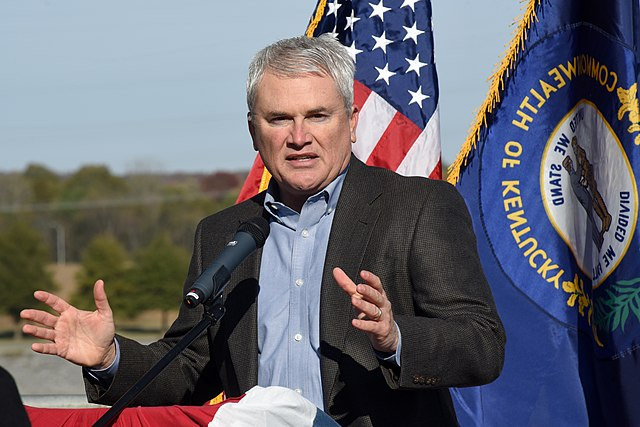In a dramatic escalation of the political landscape leading up to the 2024 elections, House Oversight Committee Chairman James Comer has subpoenaed Department of Homeland Security (DHS) Secretary Alejandro Mayorkas. This action comes as part of an investigation into alleged connections between Minnesota Governor and Democratic Vice Presidential nominee Tim Walz and the Chinese government. The timing of the subpoena-just before the high-stakes vice presidential debate-has raised eyebrows across the political spectrum.
Comer's inquiry is fueled by claims from a whistleblower that a non-classified group chat among DHS personnel includes information pertinent to the investigation of Walz's ties to China. In a letter accompanying the subpoena, Comer stated, "The Committee has learned that further relevant information regarding Governor Walz has been memorialized in both classified and unclassified documents in the control of DHS." While Comer refrained from detailing the specific allegations against Walz, he underscored the importance of understanding the potential influence of the Chinese Communist Party (CCP) on American political figures.
The subpoena seeks communications from the DHS's Microsoft Teams group titled "NST NFT Bi-Weekly Sync," as well as intelligence reports related to Walz and his staff. The deadline for producing these documents is set for October 7. Comer's investigation aims to determine whether Walz could be perceived as a "witting or unwitting participant in the CCP's efforts to weaken our nation." He warned that such connections would reveal "alarming weaknesses" in the federal government's defenses against foreign political warfare.
The claims against Walz are not new; they have been under scrutiny since his elevation to the vice presidential ticket earlier this summer. Comer pointed to Walz's extensive travel to China, where he has reportedly visited around 30 times, as evidence of potential connections. "In 1993, Mr. Walz organized a trip to the PRC for his Alliance High School students; the costs for the trip were paid in part by the Chinese government," Comer noted. The implications of these trips, along with Walz's time as a fellow at the Macau Polytechnic University, have prompted increased Republican scrutiny.
As expected, the response from Democratic lawmakers has been swift. Representative Jamie Raskin, the committee's ranking member, dismissed Comer's subpoena as a politically motivated stunt. "What do you know, it's the eve of the vice-presidential debate, and Chairman Comer has apparently been assigned another flotsam and jetsam errand from the GOP's political smear barrel," Raskin stated. He characterized the claims as a "comically trivial last-ditch attempt" to discredit Walz ahead of the debate.
This subpoena represents the latest chapter in a series of investigations into Walz's conduct and affiliations. Earlier this month, the House Education Committee subpoenaed Walz concerning a Minnesota nonprofit accused of fraudulently utilizing federal COVID-19 relief funds. Additionally, Republicans have scrutinized whether Walz complied with foreign travel reporting requirements while serving in the National Guard during his numerous trips to China.
In his letter to Mayorkas, Comer emphasized that the investigation into the CCP began long before Walz was nominated as Harris's running mate. "The Committee's investigation... seeks to understand the extent of the CCP's infiltration and influence campaign," he wrote. This assertion aims to frame the inquiry as a matter of national security rather than mere partisan politics, although many observers remain skeptical.
The backdrop of this unfolding drama includes increasing tensions between the U.S. and China, particularly regarding issues of influence and security. As the political landscape becomes ever more polarized, such allegations carry significant weight, potentially swaying undecided voters and impacting the broader election narrative. Walz's campaign has yet to comment publicly on the subpoena, while DHS has also refrained from making any statements.
The political ramifications of this investigation could be substantial, particularly in light of the upcoming vice presidential debate. With both candidates eager to present their credentials to the electorate, any damaging revelations could shift the dynamics of the race. As Comer continues to push for transparency regarding Walz's connections, the stakes are rising for both parties, making the October 7 deadline a pivotal moment in the electoral campaign.





